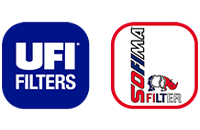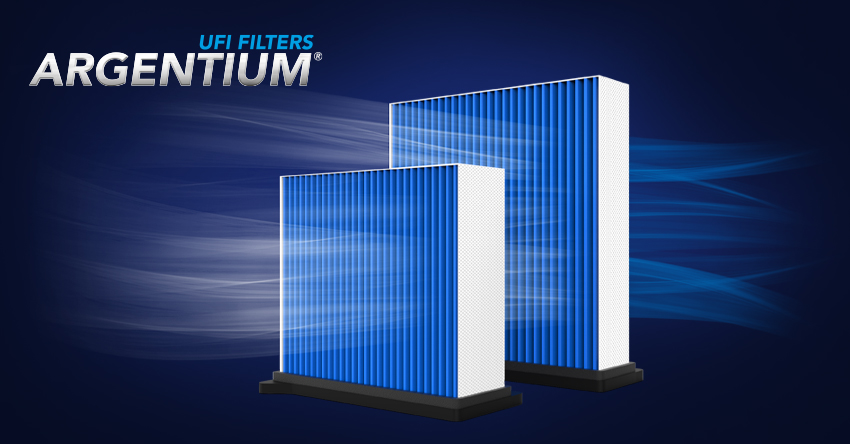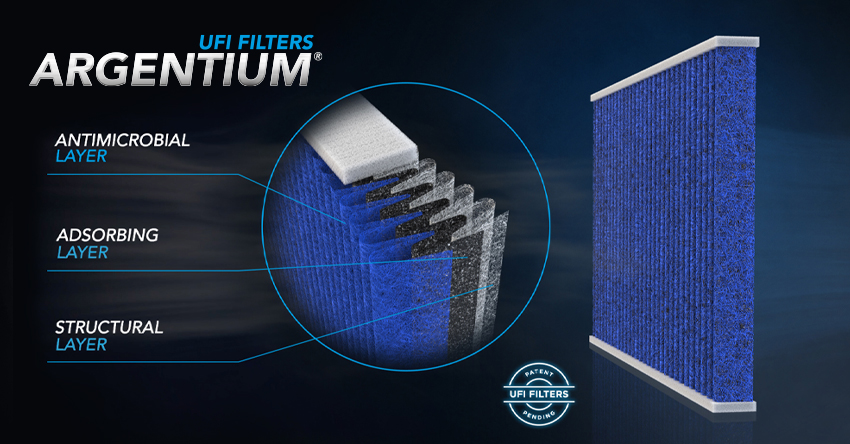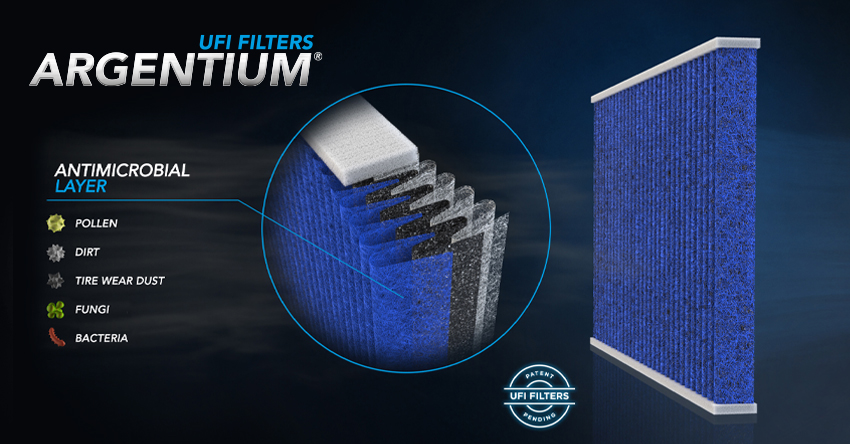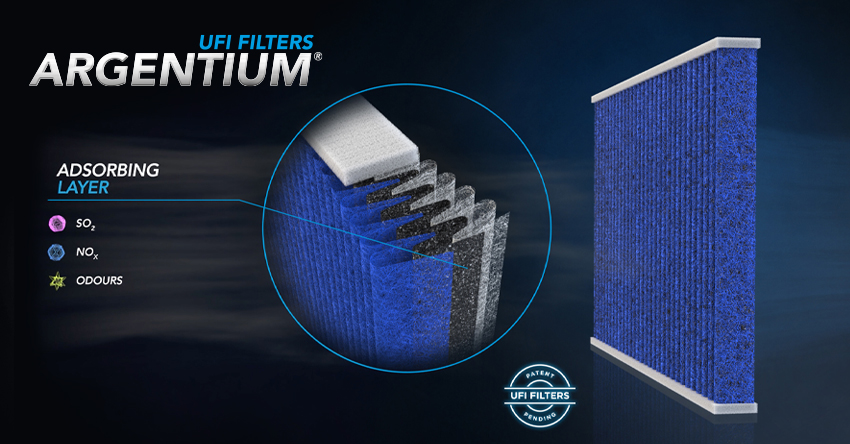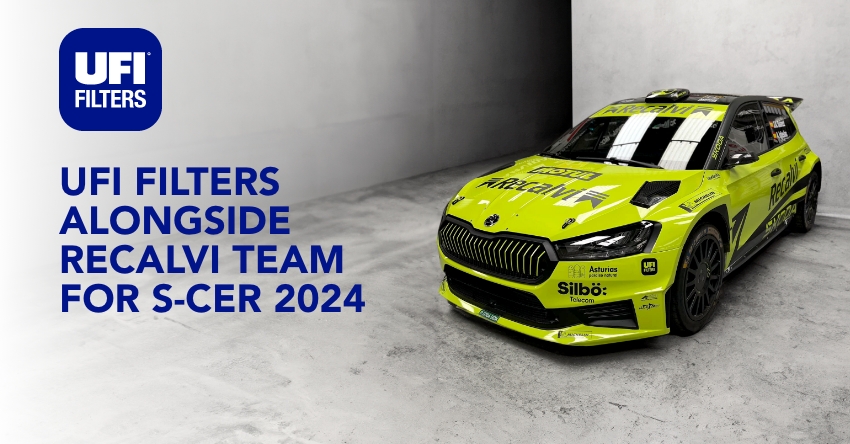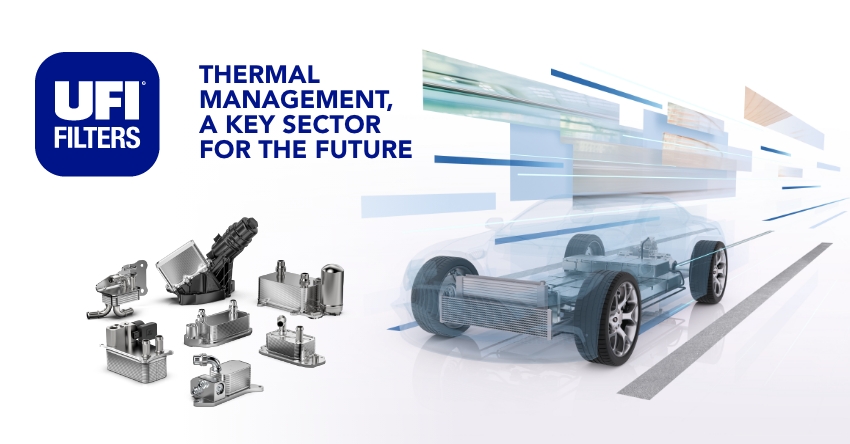The UFI Filters ARGENTIUM range of passenger compartment filters enters the UFI Aftermarket catalogue. The revolutionary filtering media produced by UFI Group, a leader in its sector, consists of synthetic polymer fibres containing a combination of elements with a high antimicrobial function.
The material is made according to FormulaUFI.Stratiflex specifications, and consists of three layers: antimicrobial, absorbent and structural. The antimicrobial layer incorporates silver particles with a powerful antimicrobial action, thanks to Biomaster silver biocide (tested to ISO 22196:2011 standards) which inhibits bacterial growth by up to 99%. When combined, these layers block pollen, dirt and tyre dust, inhibiting the growth of fungi, mould and bacteria while absorbing sulphur dioxide (SO2) and nitrogen oxides (NOx). Thanks to the presence of activated carbon, UFI Filters ARGENTIUM guarantees a filtration efficiency of over 98.5% for particles with a diameter of 2.5 microns, and also eliminates harmful gases and unpleasant odours as indicated by laboratory tests carried out in accordance with ISO 11155-1.
The lab tests confirm the main characteristic that distinguishes ARGENTIUM from the other products already on the market: UFI Filters ARGENTIUM retains its characteristics and is effective against microbial growth throughout its entire life cycle, i.e. for up to twelve months.
The UFI Filters ARGENTIUM range of passenger compartment filters is easily recognisable by its characteristic blue colouring, distinguishing it from other products in the catalogue with the initial code 34. For more information, go to the dedicated landing page: www.ufi-aftermarket.com/ufi-filters-ARGENTIUM
Why is it important to change the passenger compartment filter regularly?
Once autumn and winter have left their mark on the passenger compartment air filter, with moisture, dust, particulates and debris, it’s advisable to have it replaced in time for spring. Although the standard rule of thumb for replacement is once a year, or every 15,000km, it should actually be done at even shorter intervals in particularly dusty areas, as the rate of wear is accelerated in these places. That’s why UFI Filters recommends changing your car’s passenger compartment filter with a premium product such as UFI Filters ARGENTIUM.
A properly functioning passenger compartment air filter is fundamental. Although the concentration of dust in the atmosphere and the presence of harmful particles such as PM10 and PM2.5 vary according to weather conditions and geographical location, levels inside the vehicle may be up to six times higher than outside. This is due to the tunnel effect created by the ventilation circuit. The direct consequences of poor air quality on both drivers and passengers include allergies, sore throats, sneezing, reduced concentration while driving and even poor visibility due to condensation on the windscreen and windows. UFI Filters ARGENTIUM, thanks to the antimicrobial properties incorporated in the fibres themselves, maintains its efficiency over time, improving the quality of the air inside the vehicle in even the most intense traffic situations.
Traditionally there are two types of passenger compartment filter: synthetic non-woven pollen filters and non-woven filters combined with activated carbon. The former can hold back more than 90% of particles with a diameter greater than 2.5 μm, such as dirt and pollen. The latter can prevent particles between 0.01 and 2 μm (such as gases, bacteria, fungi and odours) from entering the passenger compartment.
These are now joined by UFI Filters’ ARGENTIUM solution, which offers a marked improvement in passenger compartment air and driving conditions thanks to its additional extended antimicrobial function. 47 codes will be added to the catalogue to start with, followed by others over the course of the year to bring the total to more than 100. These top-of-the-range products are the latest addition to a complete passenger compartment selection of 484 references, covering 98.5% of the European vehicle fleet.
